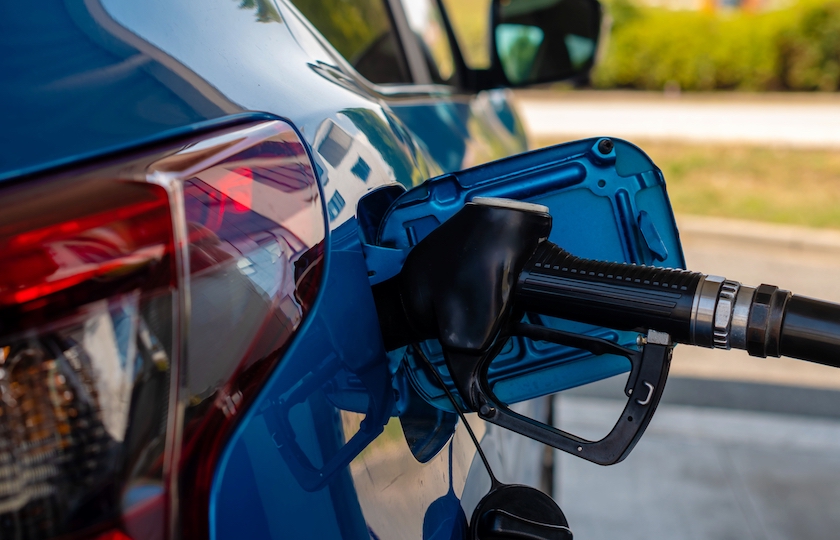Over decades, Europeans and Australians have been pushed into buying diesel cars. Taxi fleets in London and Germany operate on diesel and businesses have invested heavily in vans and trucks that burn diesel. All this in the name of fuel efficiency. But at what cost? Toxic Emissions.
Crisis Recap
The energy crisis of late last year was driven mostly by colder than expected winter, geopolitics around Nord Stream 2.0 and China and Russia hoarding coal and gas for their domestic waiting for the harsh winter. Everyone had learnt from what happened in Japan the year prior.
From September last year until January, demand for diesel shot up as economies reopened. Supply was simply unable to catch up.
Coal and gas prices eased off in January but spiked after Germany shut off the Nord Stream 2 pipeline from Russia. Since then, Europe has been trying to keep Russian oil and diesel at bay while they look for alternative gas and diesel sources. It will be a mighty challenge to replace the 5 to 7 million barrels of oil and 1.2 million barrels of diesel that flows out of Russia each day.
Steps to ease the diesel pain
When it comes to taxes, most European countries have a lower tax on diesel than gasoline. France, Australia and New Zealand have temporarily cut fuel taxes, but fuel is taxed differently in each country so we cannot make a meaningful comparison. In New Zealand, the tax on diesel is significantly lower than on petrol while in Australia it is the same across all fuels except jet fuel. Australia should have cut its diesel tax more than petrol as it has not dropped enough in price since Budget Night.
Diesel is the engine of most economies. It keeps our trucks on the road, drives farming machinery, keeps diesel/wind turbines operating and supports key operations in the mining industry. In countries like India, it has a huge impact on the fishing industry. We need to think twice before we say let’s ban fossil fuels, particularly diesel.
Diesel consumption is inelastic to price changes, meaning if prices go up the demand does not come down by much. Profit margin tends to higher than petrol. Diesel is subsidised in most parts of the world but in countries like Australia, it is not. In fact, the tax on diesel is the same as that on unleaded fuel.
Diesel usually gets less attention as politicians are just focused on voters feeling good when they fill up their petrol cars. There is some pushback on diesel in countries like Germany where some cities introduced bans on old diesel vehicles from entering the CBD. The reason: diesel fumes are highly polluting.
Switching to electric?
Some will argue that a higher petrol price will encourage consumers to switch to electric cars and that would be better for the environment. However, your vehicle might take 12 months or more to arrive due to high raw material costs and current bottlenecks in electric vehicle production. So, this is not an option to ease the pain in the short term.
It will take many decades to find alternative sources of energy. Electric trucks and hydrogen options are very limited and still not very reliable.
The failure to implement cleaner fuel and emission standards
The Australian government should have used this opportunity to revamp the fuel excise and put forward a longer-term solution. It should have imposed lower fuel taxes on 95 and 98 petrol. The sulphur content of 91 fuel is 150 ppm while for 95 and 98 it is only 50.
The government should be moving faster toward banning 91 fuels as European governments have for some time.
In Germany, for example, you only get E95 and not E91. The current European standard of 10ppm unleaded will not be mandated for Australia until 2027. The government has been doing multiple fuel security reviews in deciding on Euro 6 fuel emission standards. This has now been pushed back (yet again) to 2027 to introduce Euro6d.
Temporary options for Europe and Australia
Indian refineries are providing some temporary relief to Europe’s diesel shortage by ramping up their production and exports. Making up for the shortfall in fuel is going to put pressure on refining hubs like India, Singapore, South Korea, Japan and the Netherlands. This is likely to increase pollution levels in these countries as a result.
The UK government brought forward its ban on new internal combustion engine (ICE) cars to 2030 but it failed to provide a clear roadmap on how they would replace their heavy dependency on the highly polluting diesel.
In countries like Australia, diesel dependency could be replaced by natural gas which is far less polluting and if the government keeps the cost of domestic gas under control it is going to have a positive impact on our highly export dependant agricultural and mining industry. You cannot encourage local manufacturing while having high gas prices.
The food crisis
Another crisis that folded last year and has escalated further into the current one is the cost of nitrogen fertiliser leading to a possible food crisis in Europe. In a world where there are already agricultural and grain supply issues from the Ukraine, the high price of gas is adding further pressure to fertiliser production. The cost of growing crops like rice, wheat, and sunflowers are shooting up.
This crisis is a wake-up call for governments to focus more on energy security, and food security and to become less dependant on diesel. This might sound too simple, but we need to adopt more sustainable farming practices using natural fertilisers generated from cow and horse dung and become less dependant on chemically produced fertilisers from natural gas.



